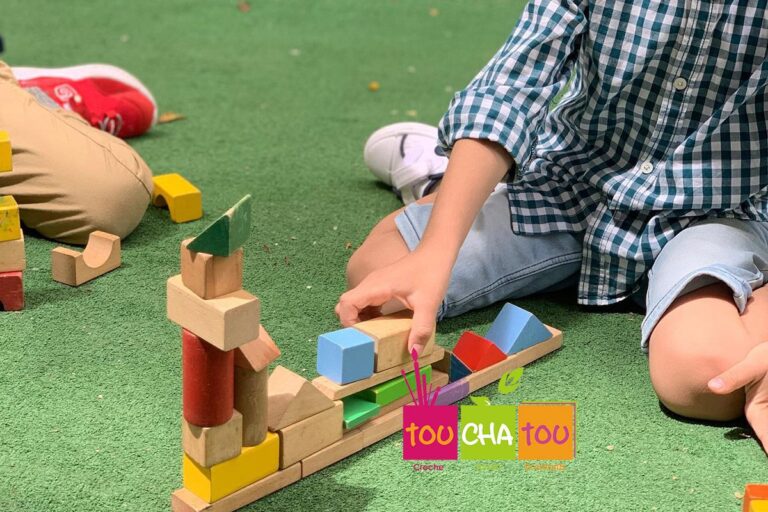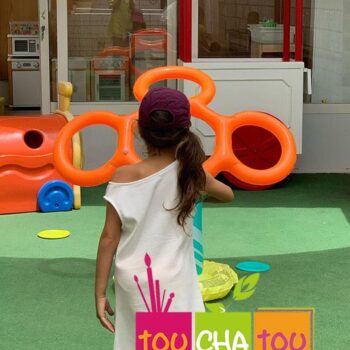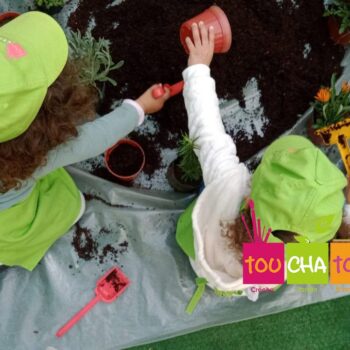The 2022 school year officially begins on 1 September, with the new school year starting on the 5th, with Thursday, Friday and possibly Saturday devoted to preparation, welcoming parents, etc.
The development of Moroccan pre-school education
Morocco is putting all its efforts into pre-school education, and the Fondation Marocaine pour la Promotion de l’Enseignement Préscolaire (FMPS) has rightly reported good results, with a significant increase in the number of classrooms. When this association was founded in 2009, Morocco’s pre-school capacity was virtually non-existent, with just a few dozen classrooms. They reached 500 classrooms in 2018 and will exceed 18,000 this year.
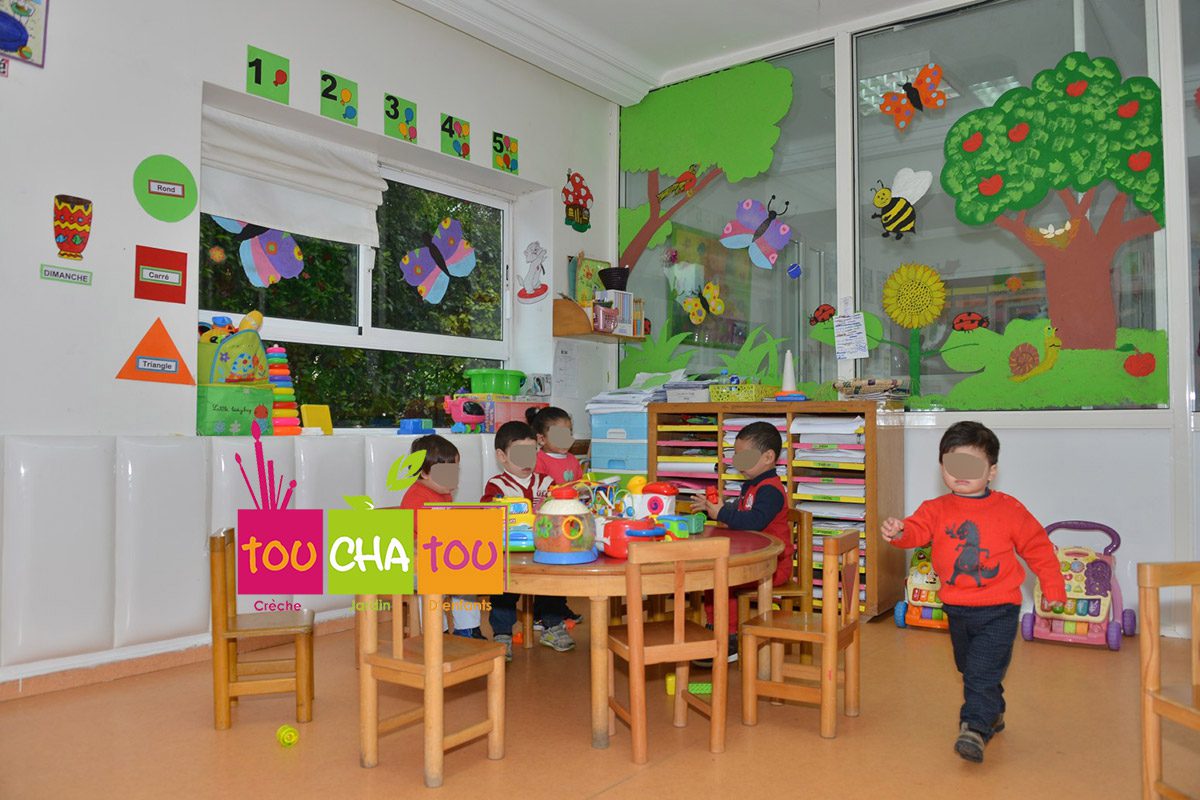
And this summer, the Association will have trained an additional 8,000 teachers in its programmes, to ensure the supervision and support of children entering these establishments.
The role of pre-school
The days when children had their first contact with school when they started primary school at the age of six are long gone.
Pre-school, which is now compulsory in many countries, enables children to acquire the life skills that are essential if they are to succeed at school: they become more sociable, and begin to acquire a little independence, simply by being detached from their mother… The psycho-motor activities develop their enjoyment of learning, bringing them into contact with numbers and letters, which they will begin to learn.
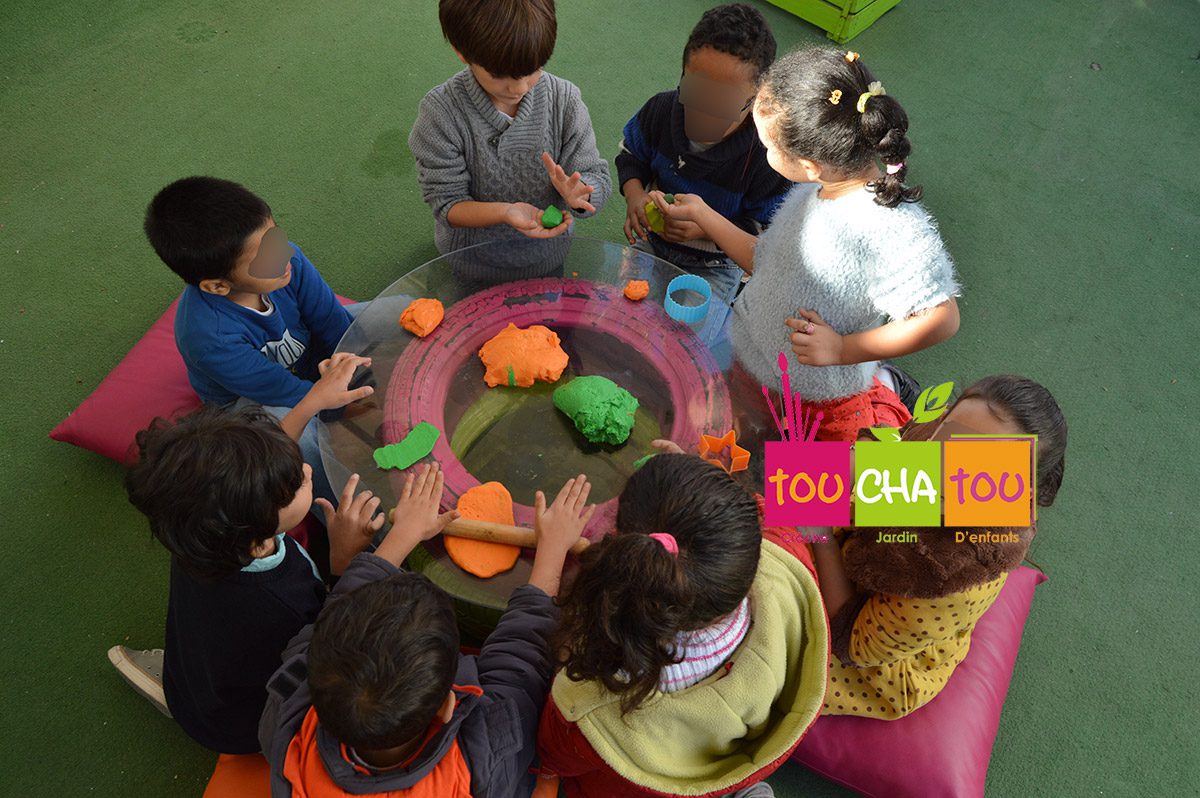
In Morocco, by law, schooling is compulsory from the ages of six to fifteen, but “access to pre-school is compulsory from the ages of four to six“, meaning that all parents who wish to send their child to pre-school must be able to do so.
Importance of pre-school in Morocco
The FMPS’s efforts demonstrate the importance of pre-school education for Morocco.
In fact, several studies have shown that the benefits of pre-school are greater for children from disadvantaged backgrounds, who do not receive the same stimulation for cognitive development at home as others. Clearly, a child whose mother cannot read, or can only read very poorly, will not have the same stimulation and interest in the written word as a child whose home is full of books…
But children from privileged backgrounds also benefit greatly.
Experience: Soraya Tamri, head of a nursery school
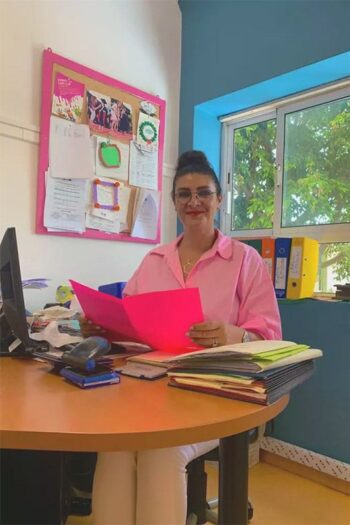
Touchatou caters for children from an early age, in crèches and nursery schools, right through to primary school. We discovered this nursery school when it was listed in our directory, and one of our friends has enrolled her children with them and is very happy with them, so this new school year was an opportunity to talk to Soraya Tamri, its director.
Touchatou, twenty years’ experience in pre-school education
Soraya Tamri recalls that Touchatou was created long before the FMPS. At the time, the school was one of the very few to offer childcare for very young children.
Passionate about children, education and psychology, she was impressed by the teaching and development methods she had discovered abroad and decided to make them available to Moroccan parents and children.
I spent a long time training myself. I knew I wanted to offer a modern method, based on what had been learned in pedagogy, in particular the discoveries of Maria Montessori. In fact, did you know that this Italian doctor gave priority to poor children? Today, schools with the official Montessori label are very expensive, even though all children should be able to benefit from this child-friendly teaching method.
A modern approach that respects children
We, too, continue to train and, above all, we constantly train our monitors and all the school staff.
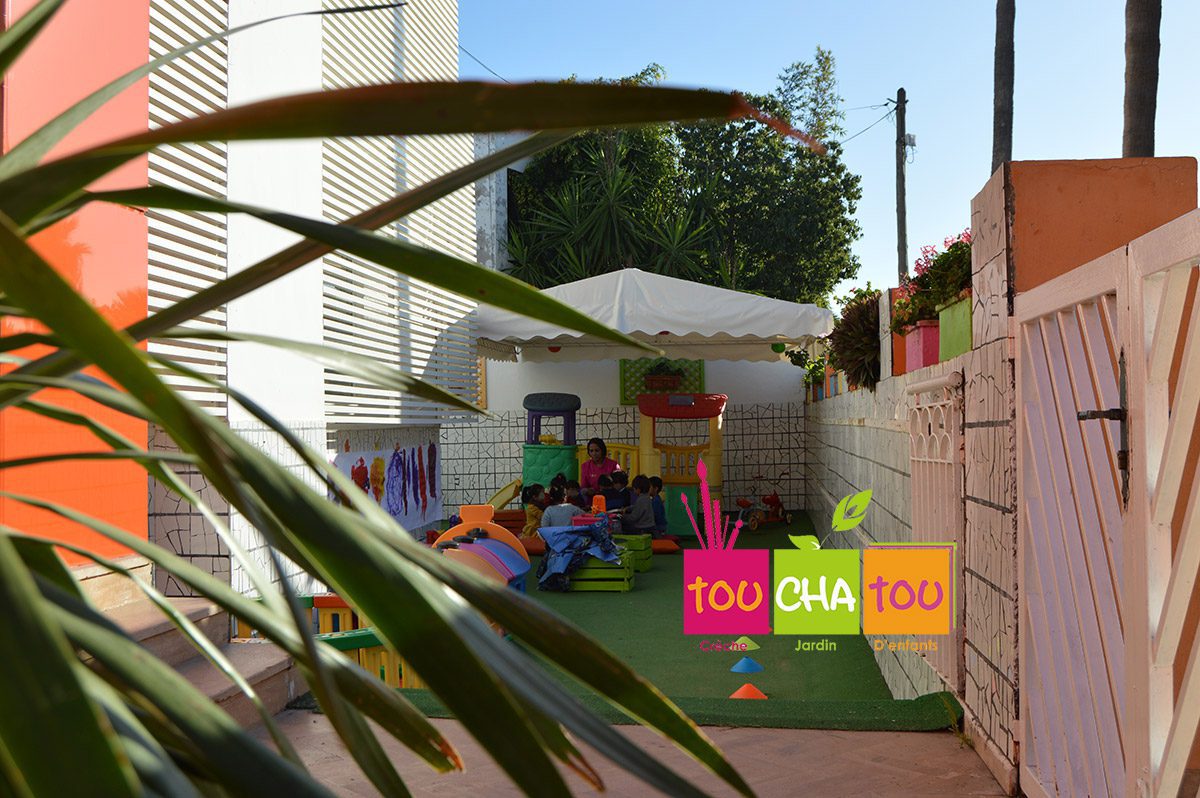
Céline Alvarez, a French teatcher who developed Montessori pedagogy and implented it in the, talks about the natural laws of the child. The idea is to take advantage of children’s curiosity and desire to learn, to support them rather than direct them, to suggest rather than impose knowledge.
At Touchatou, we have made this approach the basis of our operation, because it allows children to flourish and to approach school with confidence. All human beings, at any age, operate in the same way: we prefer to do what we want to do rather than what is compulsory. And worse still, when we are forced to do something we enjoy, the desire disappears…
From nursery age (three months) to the last day of kindergarten, our methods help children to learn, by providing a rich and stimulating environment and eliminating failure. Children learn at their own pace, and can achieve success in all areas, not just academic skills such as reading and writing
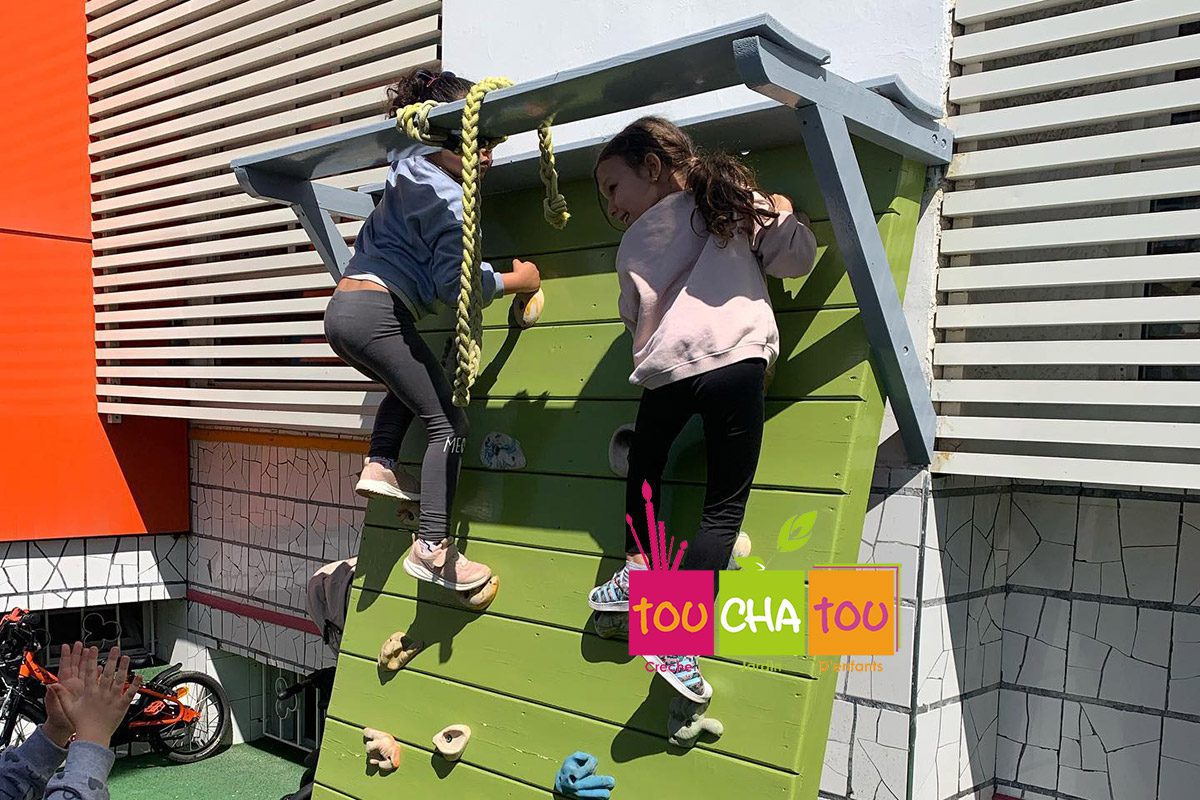
A pedagogy and an approach, more than a strict method
There’s now a lot of talk in Morocco about alternative teaching methods, and in addition to Montessori, there’s also talk about Finnish education. This is a good thing, because it makes parents more aware of the importance of this kind of education.
At Touchatou, we refuse to apply one strict method to the exclusion of another. Knowledge is evolving, particularly when it comes to how the brain works. Science has led to major advances that have never called into question the foundations of the Montessori methods, but rather complement them.
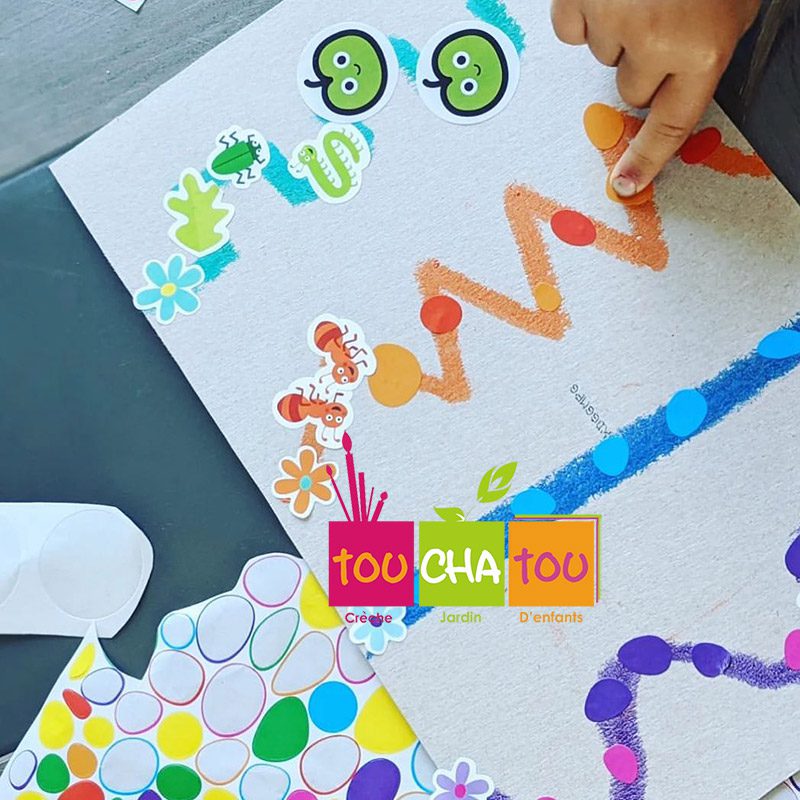
This means that classrooms, activity areas and rest areas are organised around the child, so that they are in a stimulating environment (or a restful one for a nap!) adapted to their size, without going so far as to use ‘branded’ furniture. This also has the advantage of allowing us to charge very reasonable prices!
Lockdown confirmed the importance of pre-schooling
Unfortunately, in 2020, Touchatou had to cancel the start of the school year because it was impossible to set up distance learning for the very youngest children. It was a very difficult year and Touchatou noted that the children had more difficulty in the 2022 school year.
2022 was the first normal school year and that was a relief for everyone, the families and the Touchatou teaching team. Soraya Tamri explains, looking forward to 2023 without fear:
Of course, we paid close attention to all the hygiene measures, because it wasn’t a foregone conclusion (with more than two cases in one class, the class had to close), but it’s true that everything went well.
We’ve clearly seen the benefits for the children, because a whole part of our teaching cannot be done remotely, even for those in their second year at nursery school.
By having a full, normal year, they were able to really benefit from our workshops and our way of teaching, which is partly based on integration into the group. How do you do that through a screen?
The result: children who are happy and ready to start primary school
Indeed, it’s one of our proudest achievements that our pupils can go to any primary school in Casablanca. In the case of “French mission” schools such as Molière and Bizet, our pupils, like those in all non-Osui-Aefe approved schools, have to sit an entrance exam. They pass with flying colours, and I can’t remember a single child who hasn’t been able to get in in recent years.
As one of our mums says, Touchatou is a home-made school. I quote:
My daughter is very satisfied with her school, she has learnt a lot of good things: discipline, communication, patience, attendance, respect and personality.
Discipline, for example, is an important point. Discipline is necessary, but good discipline is self-discipline. The fact that we are a small organisation makes it easier to learn this self-discipline. One of the ways we do this is by giving the children organisational or ‘supervisory’ tasks.
Back to school at Touchatou
In concrete terms, Thursday 1 and Friday 2 September are devoted to contacts between parents and teachers, without the children.
This first contact is very important: on the one hand, it allows us to explain how we work and how we are organised. On the other hand, parents can also talk about their children, their tastes and any difficulties they may be experiencing. This communication will continue throughout the year. Even in the crèche, we’re not just a day nursery: we take charge of a moment in a child’s life, we help with their education, and for that to work it has to be done in cooperation with the parents.
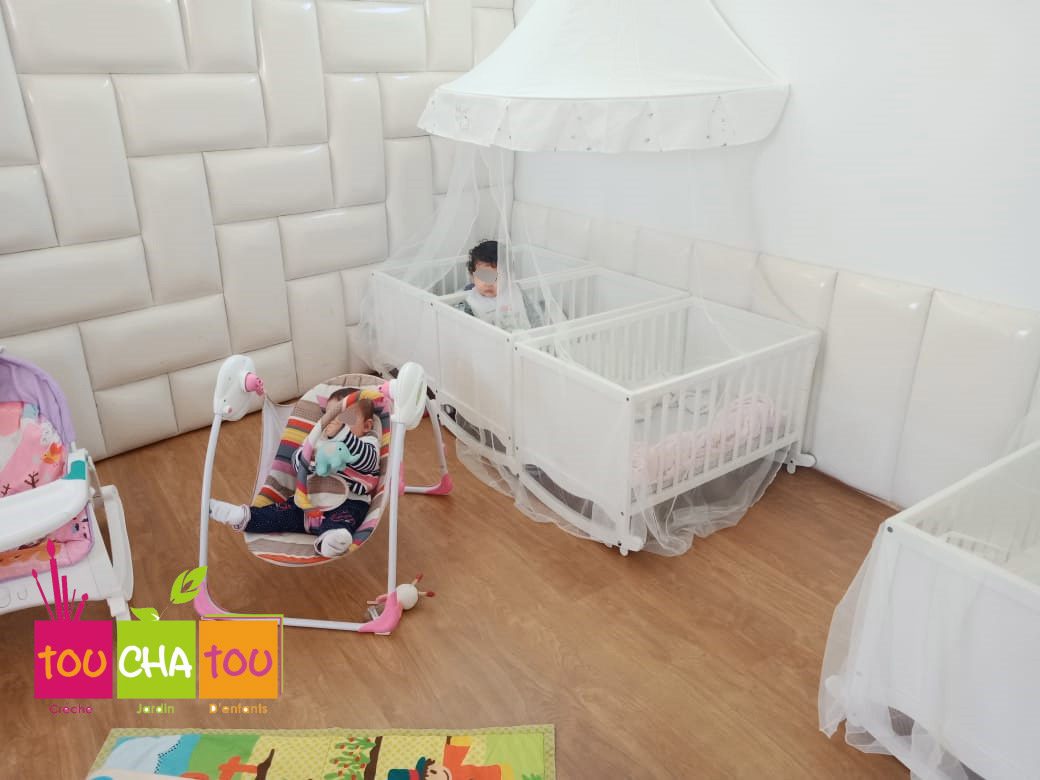
This is also the time to finalise the administrative procedures, with the submission of the full enrolment form.
The following week, from 5 to 7 September, will be the adaptation days for the youngest and very youngest sections. Children already at Touchatou will be rediscovering their environment after a long holiday, and getting to know new friends.
We also adapt the timetable: if the child is anxious, for example, he or she will not have a full day. The first separations from mum should be as gentle as possible!
Touchatou in practice
The school is located in the Al Manar district, 2 avenue de Nice. For more information, visit the school’s website or Facebook page, send an email to infos@touchatou.ma or call 05.22.39.31.32.
Children can enter the nursery from the age of three months. Thereafter, the curriculum is organised into four sections, right through to primary school.
The school week runs from Monday to Friday. Children are looked after from 7.45am to 5.30pm (with a lunch break from 11.30am to 1.45pm).
The garderie is open until 17:30. The school follows the Mission’s school calendar.
During the school holidays, Touchatou also organises workshops and extra-curricular activities.
 A typo or syntax error? You can select the text and hit Ctrl+Enter to send us a message. Thank you! If this post interested you, maybe you can also leave a comment. We'd love to exchange with you !
A typo or syntax error? You can select the text and hit Ctrl+Enter to send us a message. Thank you! If this post interested you, maybe you can also leave a comment. We'd love to exchange with you !

